Ukraine conflict: When economies rip apart
- Published
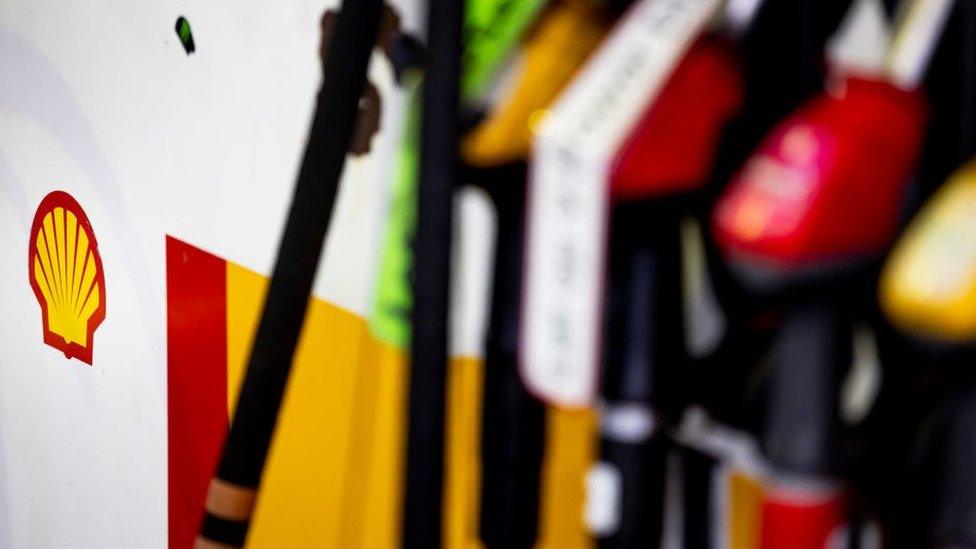
Economic punishment of Russia for its invasion of Ukraine has gone further than ever seemed possible, with even Switzerland joining in.
Companies are taking the lead from politics, showing that sanctions have a big cost on both sides of a trading relationship when it gets torn apart.
There are calculations to be made on both sides, around finance and energy: can Russia pivot to China as its economic ally? And can Europe pivot away from Russia as a source of gas and oil?
Sanctions can be a blunt weapon, and can take time to have an effect. They can also backfire. These are early days in the economic war with Russia, but we're already learning quickly how complex they can be.
The extent of them, and the momentum around them, has been little short of astonishing. It's only a few days since Boris Johnson was targeting three Russian men few of us had heard of, unless we had clocked one of them as Vladimir Putin's judo partner.
We've come a long way since then. The European Union moved more slowly at first, as it tends to do. But it's been gathering speed. Supplying weapons to warring parties is a massive shift for the EU, if only in its self-image, with far-reaching implications for its foreign policy future.
There was disagreement about the damage it could do if Russia is blocked from using the global Swift interbank payments system. Germany and Italy were reported to be unhappy about the effect on their banks.
But that taboo was also broken. The agreement on Sunday was not a comprehensive ban on using Swift, apparently allowing some energy payments to be transacted.
There have been aviation tit-for-tat blocks. The EU has ousted Russian TV channels and disinformation agencies. Britain may do so, through Ofcom, but much more slowly. Retaliation could be aimed at the soft power reach of BBC Russian and Ukrainian services - vulnerable to jamming, and potentially in the other air wars.
Irish combatants
Companies are taking the hint, and pulling out of Russia where they might be soon found to be breaking the law.
BP announced on Sunday it was pulling out of its Rosneft investment which was recently valued at more than £10bn, somehow offloading that asset at a very reduced price. Shell took a day longer to reach the same conclusion that it had to get out of its close links with Gazprom. That retreat from Moscow won't be cheap.
In their slipstream in Russia's oil fields are supply chain companies including some based in Aberdeen, told by First Minister Nicola Sturgeon that they should follow the oil majors' lead.
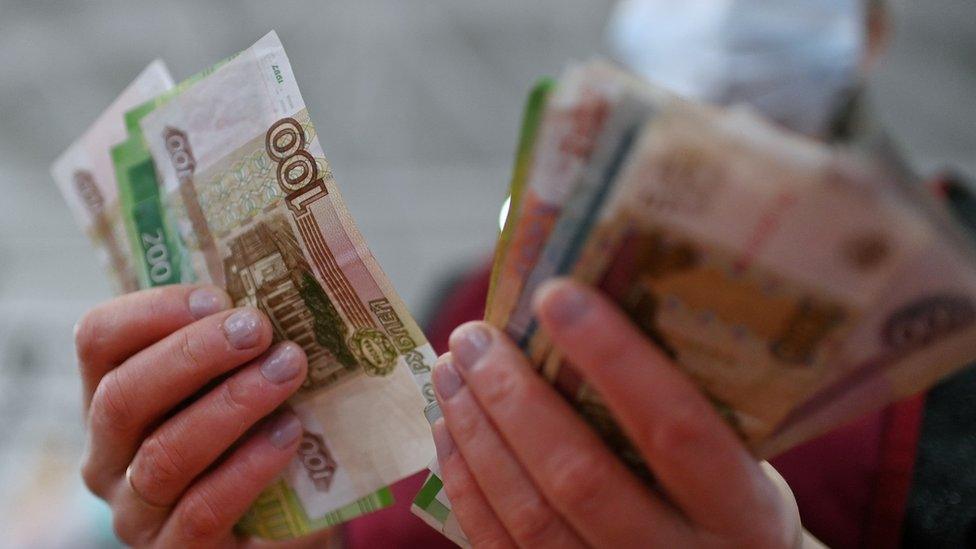
Others pulling out range from Chinese-owned Volvo cars to Faroes-owned Bakkafrost salmon, with blocks on Russian participation from Facebook to FIFA. One of the biggest pull-outs on Monday was AerCap, the Irish-based aircraft leasing company, withdrawing 152 of its planes from Russian civilian fleets.
Ireland is supposed to be neutral. But in this economic war, EU membership and the reach of multinational firms located in Dublin, mean it has become a combatant.
Debt default
Perhaps the most astonishing announcement came from Switzerland. Having remained neutral in the Second World War, it has taken sides on behalf of Ukraine and with its European neighbours, backing the EU's financial sanctions. That is a very big taboo broken.
Behind the EU and UK moves, the US has now slammed the door shut on American firms or citizens having any truck with Russian assets. Canada, Japan, South Korea and Australia have joined in.
It's a formidable alliance ranged against Russia which, in Soviet times, might have confirmed Communist ideology about the capitalist west. But Russia now plays by capitalist rules, with a powerful performance-inhibiting injection of kleptocracy, and it's being punished by them as well.
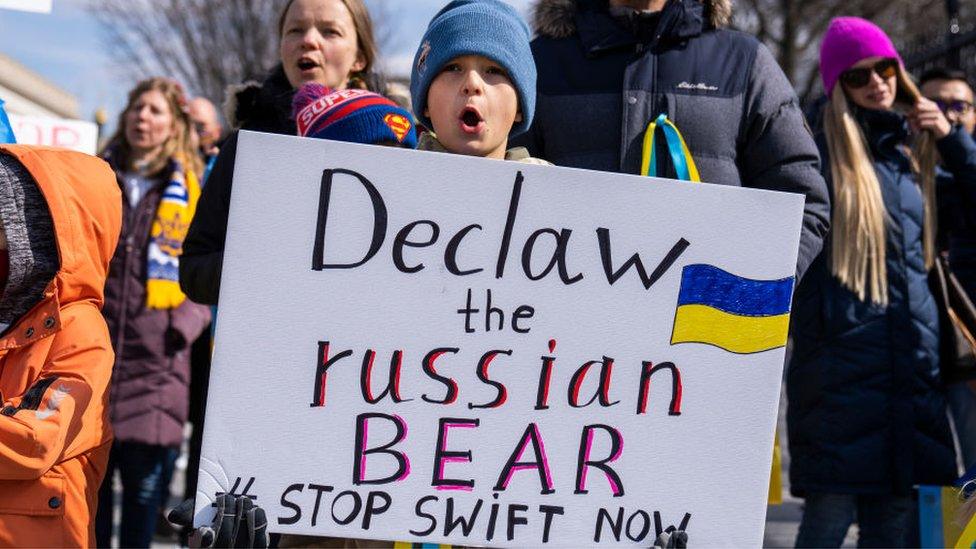
The point of taking such punitive measures is to stop one's adversary getting the advantages of trade. But as trade benefits both parties, it also hurts the side that's applying them, and potentially moreso.
So in the Kremlin, while they face a slump in the value of the rouble, more than doubling the central bank base rate, feeding inflation and pointing to a double-dip fall in output this year, the Putin administration can take some solace from sanctions imposing high costs on the sanctioner.
With nothing to lose by doing so, the Russian government is heading towards default on its debt, which pitches some of the West's biggest finance houses into very large write-downs of their assets.
BP and Shell went deep into Siberia to help Russia access its oil and gas. They and their shareholders are now paying the price, having to get out at a cost of many billions of dollars, pounds or roubles.
Chinese turn
That energy market remains the known unknown in this economic war. As trenches are dug, the decisive question is whether Russia continues supplying gas to Europe.
The West's alliance could impose an embargo on buying Russian oil and gas. That would send prices soaring, and would probably lead to painful central European shortages by next winter.
Or Russia could use the biggest economic lever it's got, and turn the taps off. Again, the counter-argument is that it ceases to have leverage at that point: sanctions backfire, and Russia would be without the income from its main customer.
One calculation for the West is how fast it can pivot to other energy sources.
Germany is scrambling to catch up with others by building new terminals for tankers carrying Liquified Natural Gas (LNG). It has none, while Britain has three. Qatar says it cannot raise its LNG production to meet the scale of supply shortfall. The US is encouraging its frackers to get back to work in that boom-and-bust sector.
Energy ministers are looking to maximise the import of Azeri gas into southern Europe through Turkey. With gas prices high, coal-burning electricity generation has been stepped up, in Britain and other countries. Renewable energy will take a lot more time to expand than anyone has in this crisis.
For oil, Saudi Arabia is reported by its state media agency to be sticking to the output constraints that it agreed with other members of the Organisation of Petroleum Exporting Countries (OPEC) plus Russia. That deal was struck to avoid prices falling too low during Covid lockdowns: having been hard-won, it is being retained while prices have been rising to de-stabilising levels.
A further calculation for both the West and for Russia is how much it can turn to China for its interbank payments system. China would happily undermine the dominance of the dollar/euro dominated world trading system, but may be wary of antagonising western customers for its manufactured goods.
Russia had already begun a pivot away from Europe towards selling its energy into Asia. On the day of the Ukraine invasion, Pakistani leader Imran Khan was due in Moscow to discuss building a new pipeline.
These are mighty big questions for big mighty power blocks. As one part of globalisation is unravelled at breakneck speed, new patterns will emerge from decisions being made in these early days of a new, perhaps protracted economic war.
- Published28 February 2022
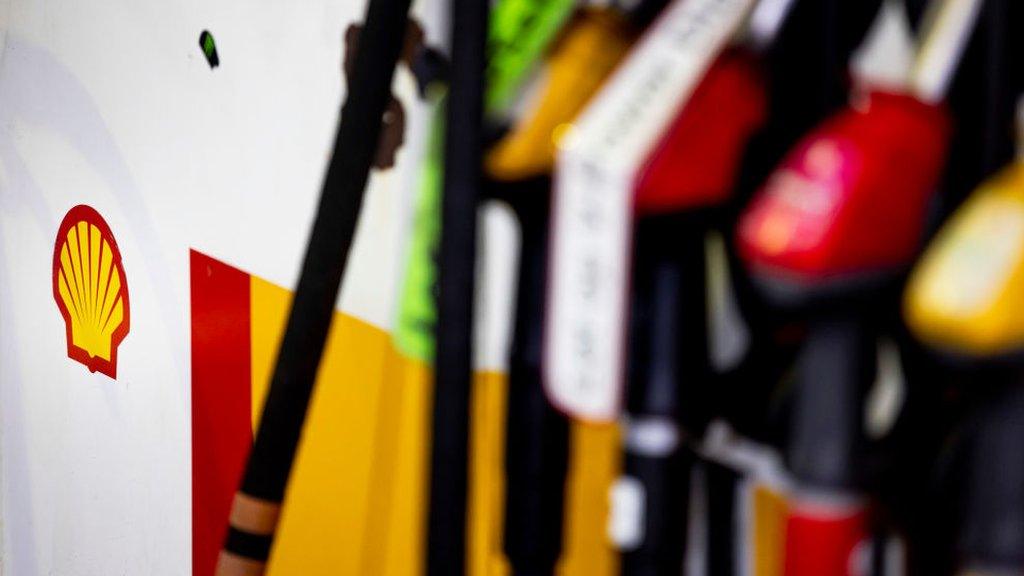
- Published28 February 2022
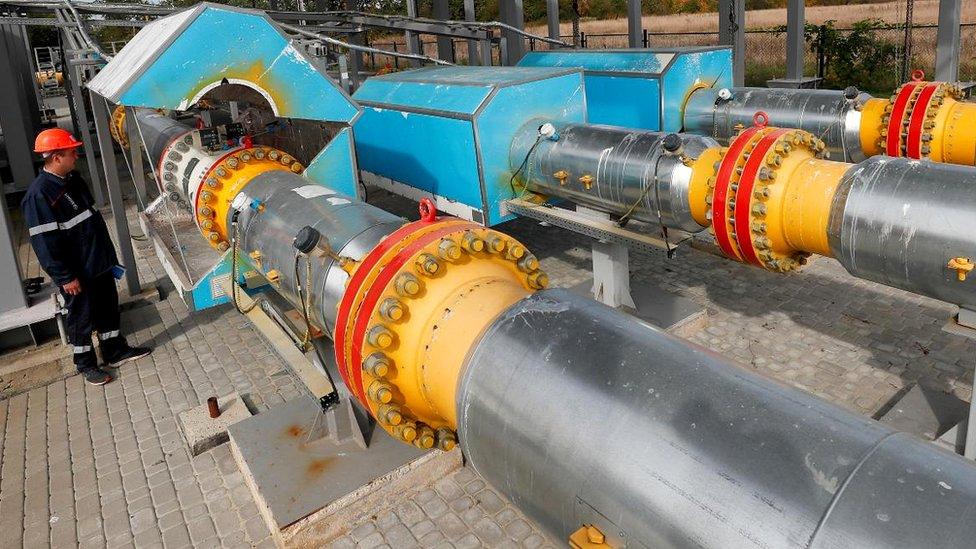
- Published28 February 2022
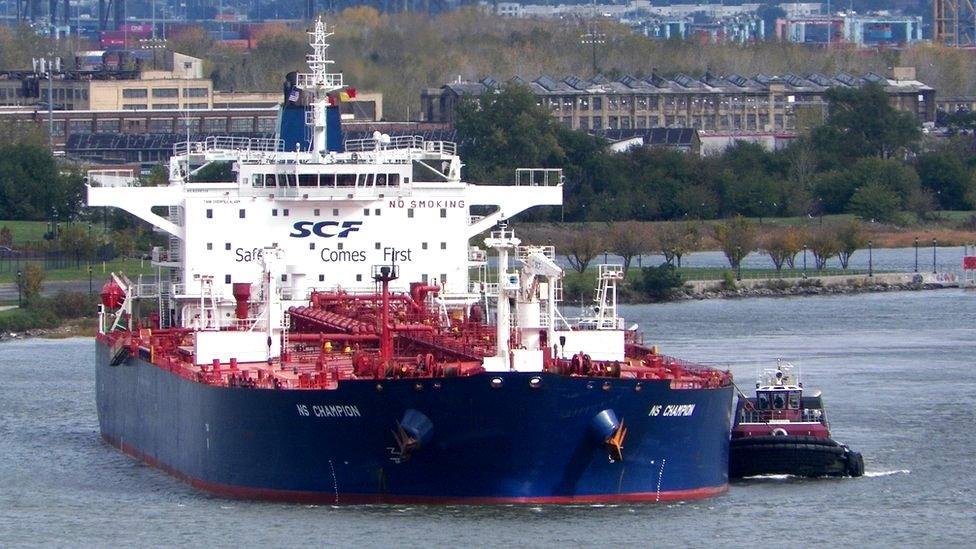
- Published28 February 2022
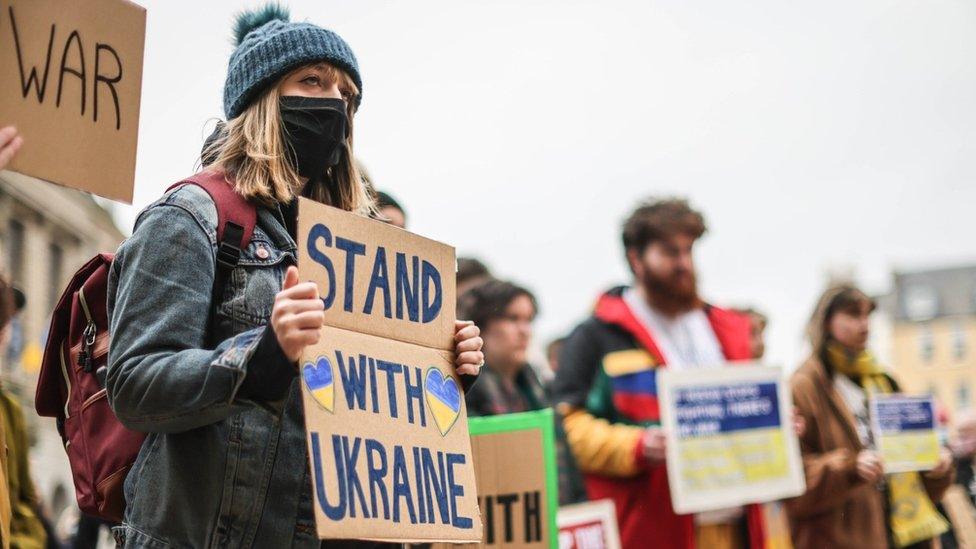
- Published28 February 2022
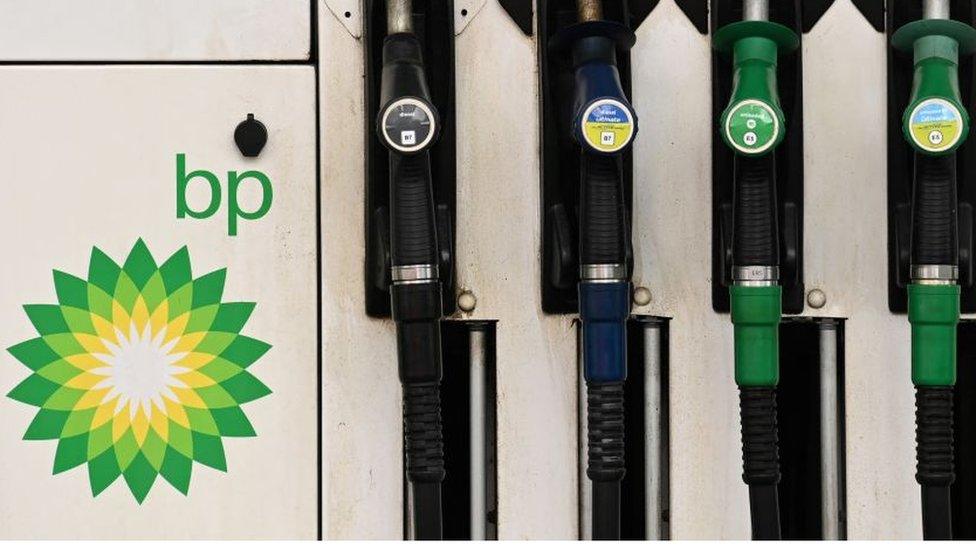
- Published4 May 2022
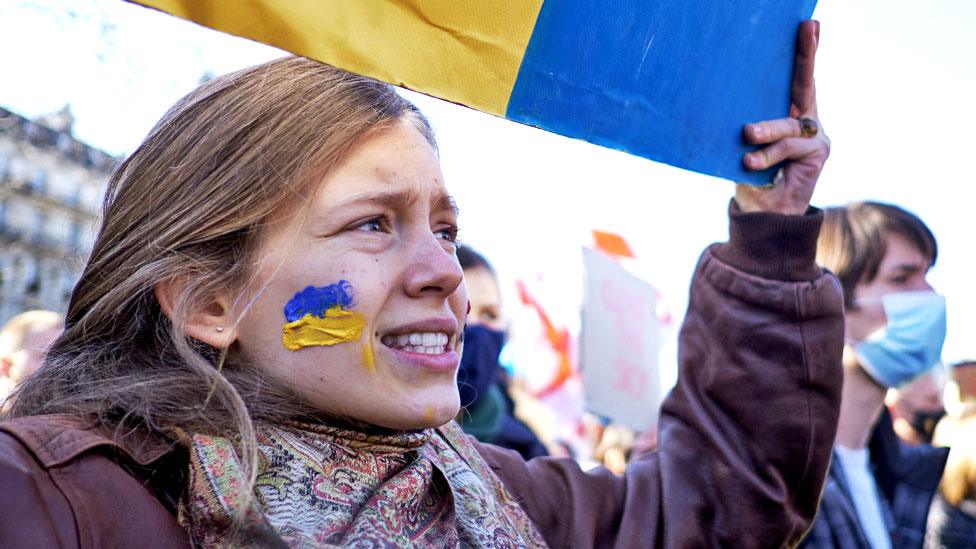
- Published25 February 2022
- Published25 February 2022
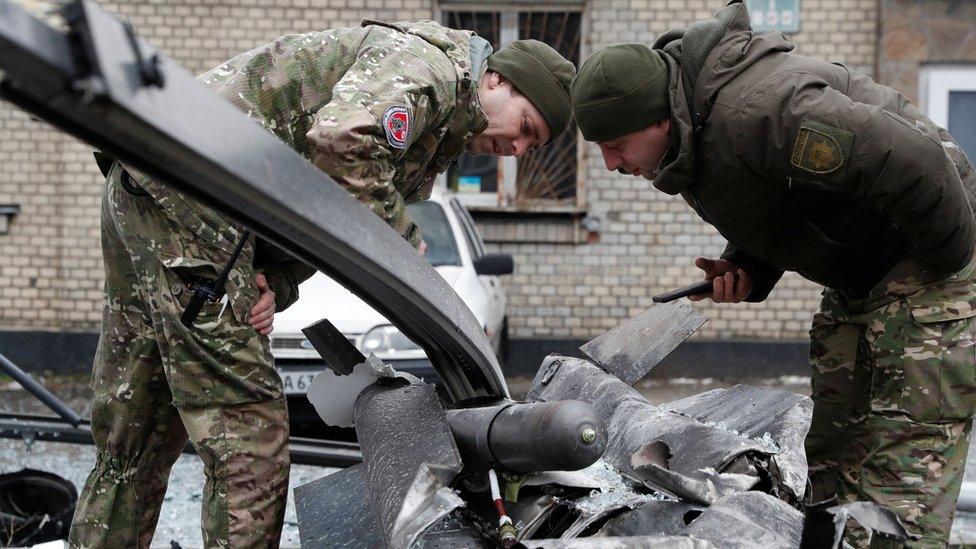
- Published7 March 2022

